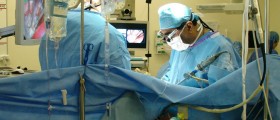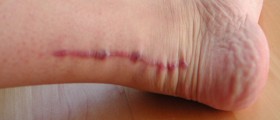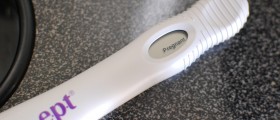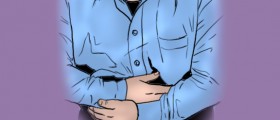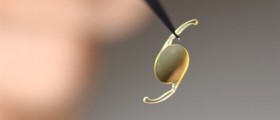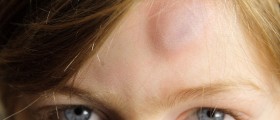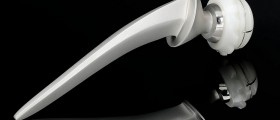Hey all..,
I`ve played boxing for 2 and a half years and I am 21 yrs of age.
This all started 3 yrs bk after when i left boxing cuz of my studies and after a year i developed 2 kidney stones and i underwent lithotrypsy. Than after a year i developed an anurysmal bone cyst in my left leg and the biopsy showed that it was just a benign (B9) tumor. last month my right arm got fractured and it contained a cyst too.
Doctors inserted 2 plates in it to keep it fixed and they will take it out after2 years. My doctor suggested me to check my PTH level. The results shwed that it was high and I have to go through another surgery to take out my left lower PTH gland.
I want to ask some questions ...so please anyone could answer me as quick as possible cuz my surgery is in 3 days...
- Is this surgery safe?
- What are the post surgery effects.
- I read some posts about PTH and came to know that it gets difficult to sleep after surgery, so what precautions should I take?
- Will I b able to play boxing again..No matter if it takes 2 years to recover.
- How long will it take for my bones to gain their strength fully?
- Will I be able to do any sort ov tough exercises after I fully recover?
This is wat basically i wanna ask about. Any extra suggestions would be welcomed.
Regards
Junaid
I`ve played boxing for 2 and a half years and I am 21 yrs of age.
This all started 3 yrs bk after when i left boxing cuz of my studies and after a year i developed 2 kidney stones and i underwent lithotrypsy. Than after a year i developed an anurysmal bone cyst in my left leg and the biopsy showed that it was just a benign (B9) tumor. last month my right arm got fractured and it contained a cyst too.
Doctors inserted 2 plates in it to keep it fixed and they will take it out after2 years. My doctor suggested me to check my PTH level. The results shwed that it was high and I have to go through another surgery to take out my left lower PTH gland.
I want to ask some questions ...so please anyone could answer me as quick as possible cuz my surgery is in 3 days...
- Is this surgery safe?
- What are the post surgery effects.
- I read some posts about PTH and came to know that it gets difficult to sleep after surgery, so what precautions should I take?
- Will I b able to play boxing again..No matter if it takes 2 years to recover.
- How long will it take for my bones to gain their strength fully?
- Will I be able to do any sort ov tough exercises after I fully recover?
This is wat basically i wanna ask about. Any extra suggestions would be welcomed.
Regards
Junaid
Loading...
If they located the tumour pre-surgery, you should be fine. Really. So take the scary bits with a grain - or possibly a whole shaker - of salt.
VERY RARE SIDE EFFECTS: Loss of voice, nerve damage requiring tracheostomy (sp?) to be able to breathe, killing all four parathyroids. Again, VERY RARE, and if they've found the tumour already they won't be poking around where they shouldn't be.
Possible other side effects: Sudden blood calcium drop on account of your bones sucking in all the calcium - can require you to take calcium supplements or occasionally be hospitalised for IV calcium (not very many people are hospitalised). You'll know if it happens, you'll get tingling in your hands and feet and muscle spasms. This isn't permanent, it usually doesn't last more than a week or two - and most people have no problem with it.
Haematoma around the area of the incision. If you're choking, call an ambulance. RARE, and treatable.
Transient overactive thyroid. Makes you feel miserable for four to six weeks, treatable. RARE.
Reaction to anaesthesia - makes you really sick at the stomach for one to seven days.
Sore head/neck/throat/shoulders/chest from surgery. This is almost assured to happen, give it a few weeks and it'll go away. It takes a while to recover. You'll also have a small lump around the incision for a couple of months while everything is knitting back together.
Given your youth, you should be able to recover your bone density within a few years, as well as be rid of the kidney stones and other symptoms.
The only cure for hyperpara is to have the tumor out, and if you don't, you'll be risking worse. Assuming your surgeon is competent, definitely do it - the sooner the better.
Good luck!
VERY RARE SIDE EFFECTS: Loss of voice, nerve damage requiring tracheostomy (sp?) to be able to breathe, killing all four parathyroids. Again, VERY RARE, and if they've found the tumour already they won't be poking around where they shouldn't be.
Possible other side effects: Sudden blood calcium drop on account of your bones sucking in all the calcium - can require you to take calcium supplements or occasionally be hospitalised for IV calcium (not very many people are hospitalised). You'll know if it happens, you'll get tingling in your hands and feet and muscle spasms. This isn't permanent, it usually doesn't last more than a week or two - and most people have no problem with it.
Haematoma around the area of the incision. If you're choking, call an ambulance. RARE, and treatable.
Transient overactive thyroid. Makes you feel miserable for four to six weeks, treatable. RARE.
Reaction to anaesthesia - makes you really sick at the stomach for one to seven days.
Sore head/neck/throat/shoulders/chest from surgery. This is almost assured to happen, give it a few weeks and it'll go away. It takes a while to recover. You'll also have a small lump around the incision for a couple of months while everything is knitting back together.
Given your youth, you should be able to recover your bone density within a few years, as well as be rid of the kidney stones and other symptoms.
The only cure for hyperpara is to have the tumor out, and if you don't, you'll be risking worse. Assuming your surgeon is competent, definitely do it - the sooner the better.
Good luck!
Loading...
Suggestions: No heavy exercise for three to four weeks post-surgery - though you should be able to be up and about and doing normal things after a few days. Just avoid running, lifting anything heavy, etc. Walking is good for you, and you should be able to take baths again a day or two after the operation.
Don't drive for three weeks or so post-surgery - until you can turn your head without pain. It's usually not a big deal, but be on the safe side here.
Before the surgery, make sure you have some Citrical (easy to tolerate calcium supplement), milk, and ice cream at home. Those all contain calcium, and milk and ice cream are easy to swallow - you will have a bit of a sore throat for a few days. You might want some pain killers, too, if they don't prescribe any. Might as well stock up on soups, puddings, etc., too.
Plan for two weeks out of work/school. You may not need more than two or three days, but you don't know for sure, so...
Your doctor may tell you something totally different, but that's what I'd recommend. But also ask your doc.
Don't drive for three weeks or so post-surgery - until you can turn your head without pain. It's usually not a big deal, but be on the safe side here.
Before the surgery, make sure you have some Citrical (easy to tolerate calcium supplement), milk, and ice cream at home. Those all contain calcium, and milk and ice cream are easy to swallow - you will have a bit of a sore throat for a few days. You might want some pain killers, too, if they don't prescribe any. Might as well stock up on soups, puddings, etc., too.
Plan for two weeks out of work/school. You may not need more than two or three days, but you don't know for sure, so...
Your doctor may tell you something totally different, but that's what I'd recommend. But also ask your doc.
Loading...


